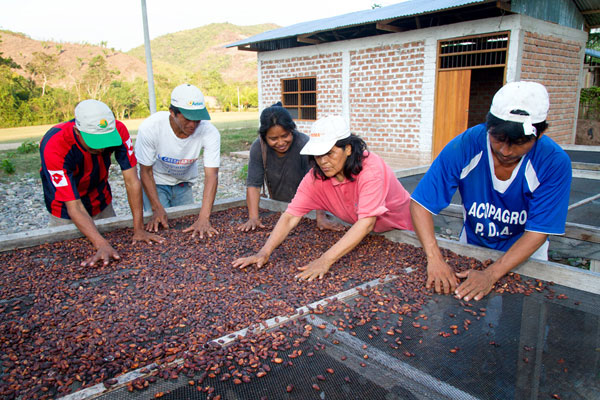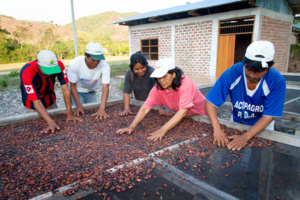Half a decade ago, farmers in Mozambique could not feed their birds for want of soy. They had to import all of their requirements from abroad since there were very few domestic growers cultivating the crop. This is when TechnoServe, the Washington DC based NPO, stepped in and played matchmaker between the growers and the consumers.
Poultry farmers who were looking for soy to feed their birds could know source their soy from small scale farmers who were looking for expand their trade. It was a win-win situation for both sides. Additionally TechnoServe helped both sides with technical instructions as well as supplies. Thanks to TechnoServe’s efforts more than 30,000 farmers could grow and had a ready market for their soy.
Poultry farmers who were looking for soy to feed their birds could know source their soy from small scale farmers who were looking for expand their trade. It was a win-win situation for both sides. Additionally TechnoServe helped both sides with technical instructions as well as supplies. Thanks to TechnoServe’s efforts more than 30,000 farmers could grow and had a ready market for their soy.
“It was a large-scale transformation of smallholder agriculture in Mozambique,” says Brent Habig, TechnoServe’s regional director for west and southern Africa.
This is not an isolated incident: under-utilization of farmland in developing nations is a huge problem. Farmers are geographically isolated and they lack the necessary know-how as well as the capital so as to get the most out of their land and bring about a sense of financial stability in their families.
According to a report released by Acumen and Bain, an anti-poverty, NPO, in developing countries like Mozambique, there are more than 2.5 billion small time farmers subsisting on less than $4 a day. Although various government and charitable institutions have been working at this problem for years, no workable solution was at sight. It is only recently that for-profit firms have taken up this daunting challenge, banking on the power of the market to create a customer base and find solutions to problems which were otherwise considered as unsolvable.
Although every farmer will be facing problems which are unique to its peculiar situation, however there are always two things that are in common no matter which farmer you go to. The first is that the farmer is looking for ways to improve the current yield of his crops, and the second is that they are always in search of a market.
“They’re desperately looking for better technologies to farm with,” says Bob Rabatsky, director of Feed the Future partnering for Innovation.
One of the firms mentioned in the report published by Acumen and Brain is SVAgri. It has 125 franchises across India that sell potato planting supplies to and helps the farmers locate buyers for their precious harvest. The same kind of service is provided by KK Foods in Uganda. Other companies focus more on ensuring that the farmer has enough liquidity to carry out their business. TechnoServe, for instance, connects small farmers to local banks and businesses.
For example in West Africa, TechnoServe, went about connecting cocoa farmers to local businesses and banks so that they could have access to some more credit with which they could buy more fertilizers and pesticides and thus take care of their crop. Juhudi Kilimo, is yet another firm that provides microfinance to individual farmers in Kenya, so that they can carry out their agricultural operations. As per its books, it has disbursed $5.8 million in loans and advance as on 2013.
One of the reasons why private players are succeeding where governmental and charitable institutions have traditionally failed because their very structure requires that they pay attention.
“When you start treating the farmer not as a beneficiary but as a customer … you work much harder to understand what their needs are. It’s not that the private sector is the only one that can solve these problems. It’s that, at some level, the private sector can bring a unique set of solutions that neither aid nor philanthropy can do,” says Milstein.






